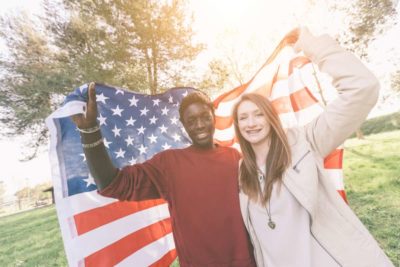When I was a girl, my father had a backyard zoning dispute in my small hometown of Concord, North Carolina. As a result, I grew up hearing the most powerful people in all the land were the ones who made the zoning laws.
My hometown is not nearly as small as it was in my childhood. I left Concord in the late 1980s and in the next decade it grew at a whopping rate of 105 percent. That undoubtedly created a lot of zoning decisions.
The importance of local elections
My dad was right. Local government is important. Everything from parks, to schools, to water, to taxes, to business development, to billboards, to broadband, and yes, even to zoning, comes under the purview of local government – and they all have a direct and often immediate impact on our daily lives.
And yet, most people do not bother to vote in local elections. The worst culprits are young people. A recent study suggests that individuals 65 and older are twenty times more likely to vote in a local election than their 18-to-34-year-old counterparts.
If you interact with a lot of young people, this may be of no surprise to you. In a Harvard Institute of Politics 2014 study, only 33 percent of millennials said they had trust in government, compared to 60 percent of the rest of the population. Only 29 percent believed that political involvement led to tangible results. The most popular party affiliation among this group is unaffiliated.
Young voters bring important perspectives to our election, and “Team Democracy” does not do as well when so few of the young players are not even in the game.
This may be especially true for local elections where every vote counts and political careers begin. We need the next generation of voters to be engaged, informed, and ready to participate in all elections.
First Vote NC: a free election simulation tool for teachers
First Vote NC is working with public schools (traditional and charter) to introduce students to the nuts and bolts of voting and why that vote matters in our democratic system of government.
Because of the effort of hardworking and committed educators across the state, more than 32,000 students from 76 high schools in 46 counties were able to practice what it is like to participate in the democratic process in the 2016 elections.
One high school civics teacher wrote of the experience:
“First Vote NC was an excellent resource and set of activities — well put together. Emails were timely and helpful. The website was a breeze to navigate. My students are still talking about it. This may have impacted them more than any other activity they have participating in this semester!”
With the help of partners like Carolina K-12 and NCDPI, First Vote NC aims to bring this same energy to the local elections this fall.
While the national elections garner the most attention, local elections are a crucial part of our democracy and fundamentally affect our daily lives. The large majority of young people do not vote in them. First Vote aims to change that.
Teachers, learn more about First Vote NC and sign up today to participate in the local election package this fall.
Once you register, you can access lesson plans aligned with NC standards, customize your ballot to include additional local issue questions, simulate an election with ballots identical to the ballots used at the school precinct, and use First Vote NC’s interactive data platform to analyze the results.
Research tells us that individuals who vote in their first election are significantly more likely to become life-long voters. This is a habit we want every young person to develop – to be both engaged and informed. After all, you never know what will end up in your back yard.
For more information, watch the video below and contact Hunter Buxton at hbuxton@ednc.org.










